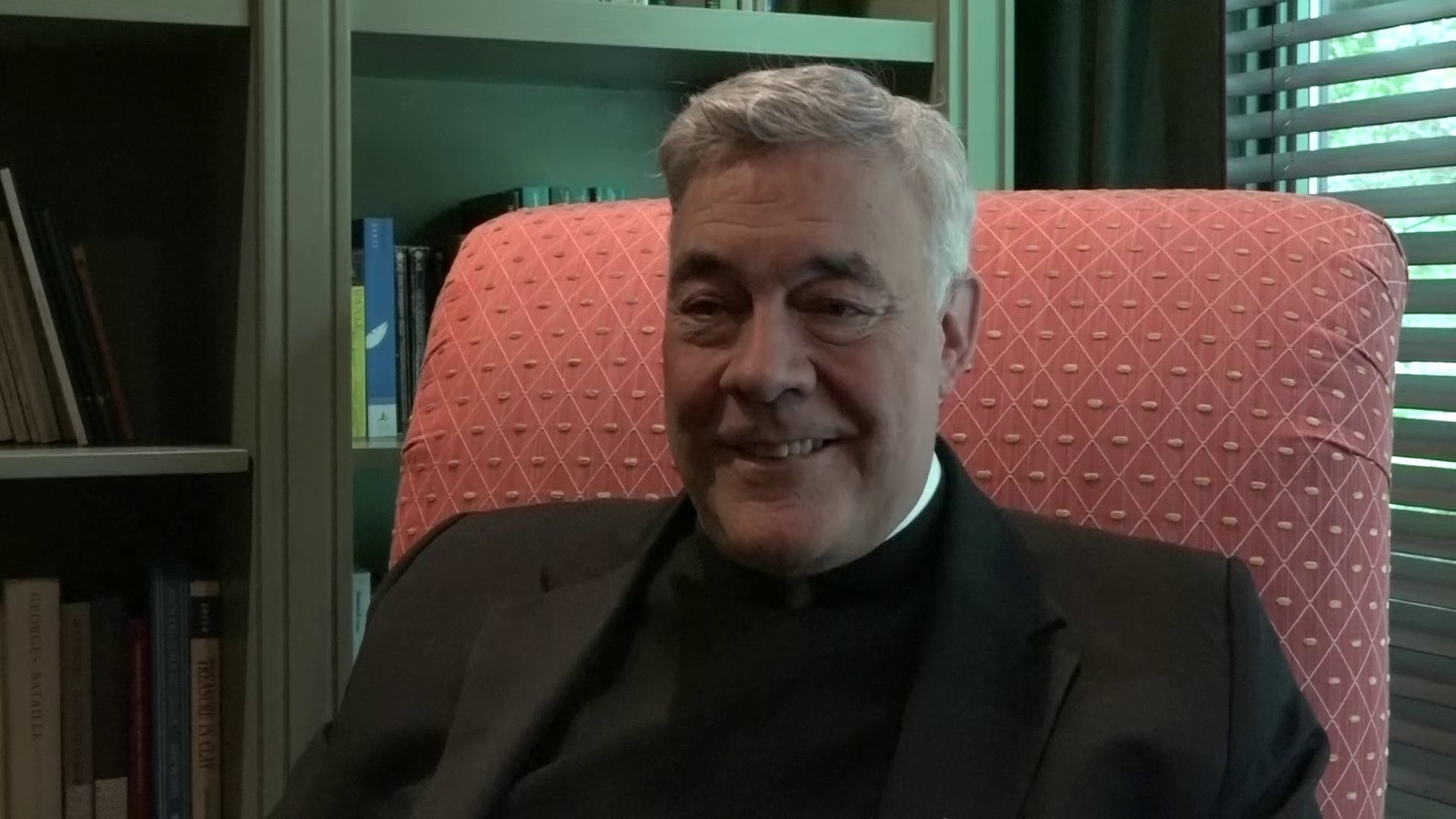GRAND RAPIDS, Mich. — From the big screen, to more famously on TV, Tony Sirico was a big star. He died earlier this month at age 79.
A fan-favorite, playing Paulie "Walnuts" Gualtieri for nearly a decade on The Sopranos, he had ties to West Michigan. His brother, Father Robert Sirico, pastor emeritus at Sacred Heart of Jesus Catholic Parish and the founder of the Acton Institute in Grand Rapids.
"We were in the house together, but he was almost ten years older than me," recalls Robert of his childhood with Tony.
Ten years older, and a world apart when it came to interests. While Tony was living a rough and tumble childhood on the streets, Robert chose to pursue a life in the church.
"I remember going to my mother once to say, you can tell me, am I adopted?" laughs Robert.
But that doesn't mean the two didn't love each other.
"It didn't hurt to have a brother like that when the bullies at school would pick on you, because he take care of it like that," says Robert.
As they grew older, Tony fell into trouble with the law, even spending time in prison. Robert says that's where rumors of his mob involvement began to swirl, which he says aren't true.
"He was not a made man," says Robert, a "made man" referring to a formal member a crime family. "And I know also that he never killed anybody."
After leaving prison, Tony came out with a new desire, to act.
"He had very clearly broken with his past, and he had a new direction," says Robert. "But he wanted to use what he had experienced professionally, which he ended up doing quite phenomenally."
One of his first roles, a low budget mob movie. His brother, not impressed.
"I have to say, it was a horrible film in my estimation," remembers Robert.
But roles kept coming. An episode of Miami Vice, a part in Goodfellas.
And then, in the late 90s, a supporting role on a new show on HBO.
"He said it's called 'The Sopranos'," says Robert. "I said, it's a singing thing? He said, no, no. You wouldn't understand."
Tony's character Paulie was a hit with the show's viewers immediately, with Tony bringing his real life history to the character.
"There were things that I recognized that people wouldn't know if they didn't know my brother that were parts of his life," says Robert.
From his fear of germs, to the perfection of his hair and many more of Paulie's quirks.
"A lot of these hand gestures," says Robert. "And the bada boom, bada bing. I mean, I heard that growing up."
Tony's popularity spread here to Grand Rapids, where he often visited his brother. At a party with much of the local elite, Robert remembers Tony spending his time with a child in a wheelchair.
"He sat down with that kid and talked with him the rest of the night," says Robert. "Ignored all of these people in the room. In a way, it epitomize the kind of soft interior."
A soft side that allowed Tony's family to have closure after his death.
"I think that soft interior is what made it possible for him, at the end, to go to confession and to receive absolution," says Robert, who personally heard Tony's confession and absolved him. "Which for me, as a priest, was the most important thing."
And while the two brothers spent life on wildly different paths, Robert says he wouldn't have it any other way.
"We loved each other," says Robert. "We have a mutual admiration. I was so proud of his success, and he was so proud of mine."
Robert had plenty more to say about his brother, as well as shared some behind the scenes stories of his time visiting the 'Sopranos' set.
You can find the full interview here:
►Make it easy to keep up to date with more stories like this. Download the 13 ON YOUR SIDE app now.
Have a news tip? Email news@13onyourside.com, visit our Facebook page or Twitter. Subscribe to our YouTube channel.

